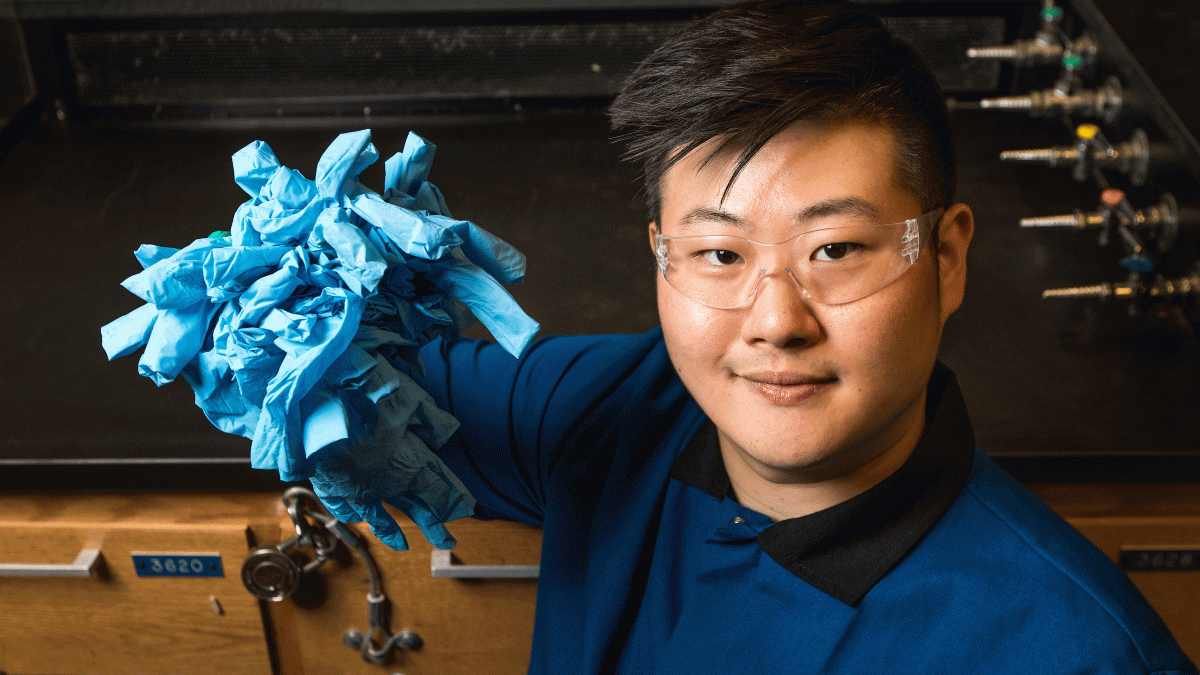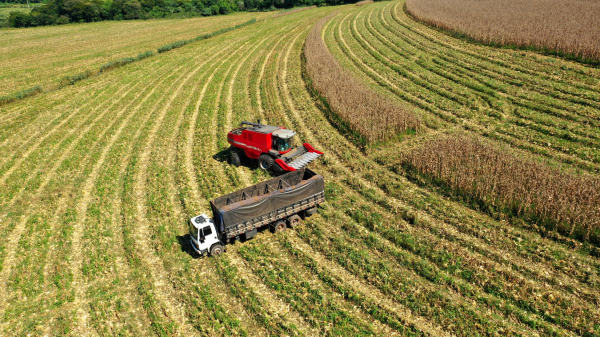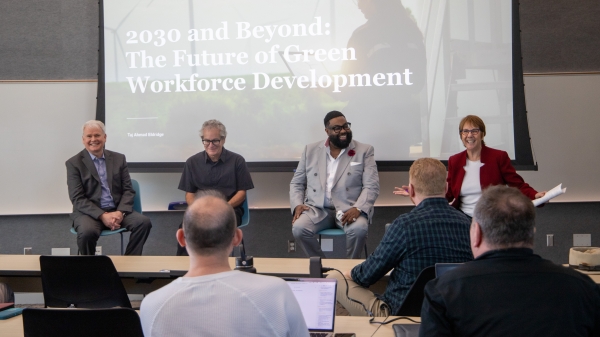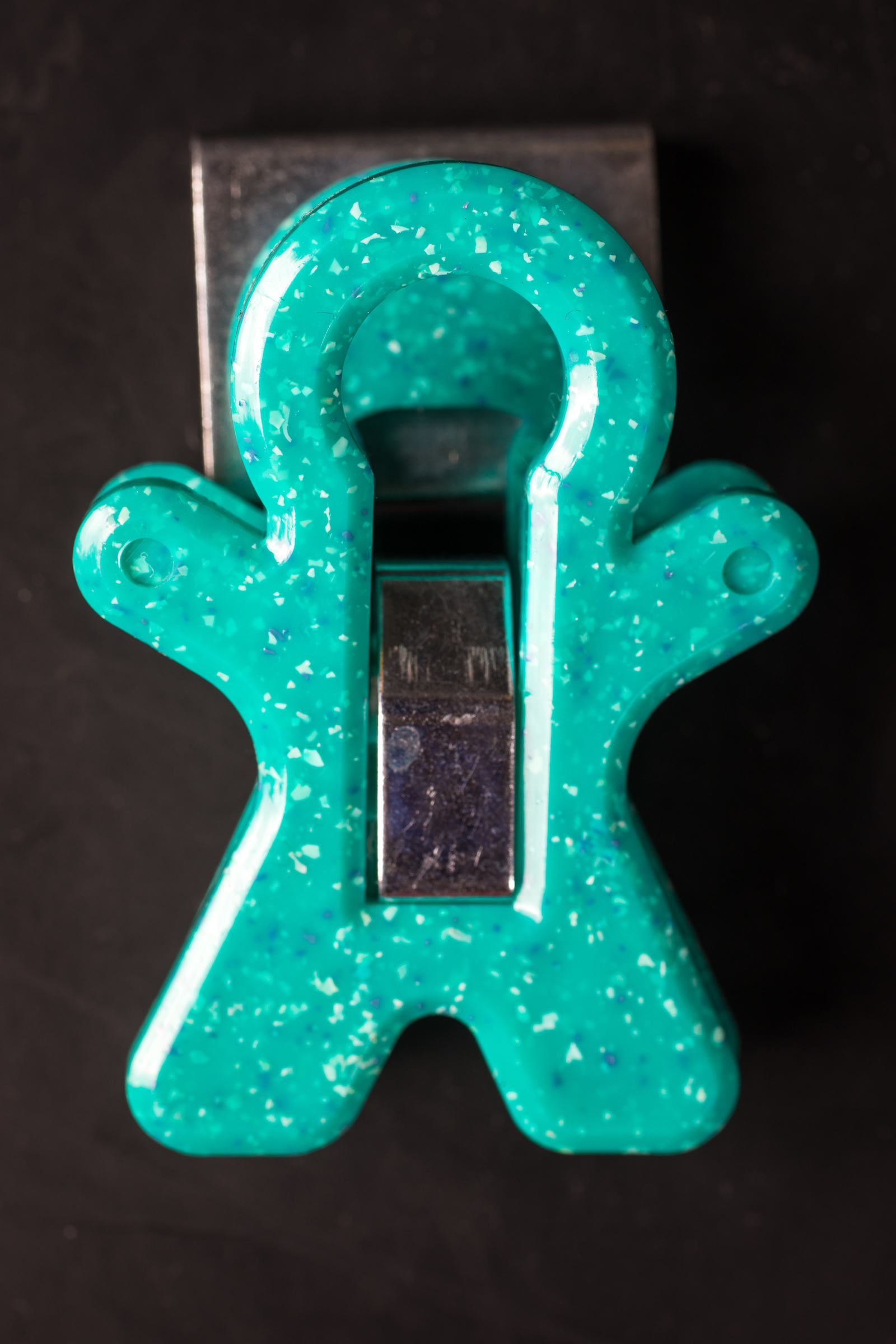ASU student spearheads lab-glove recycling program
Program started this fall at Tempe and Polytechnic campuses, to expand to others

Bill Dauksher has worked in clean rooms and labs for almost 30 years. For him, putting on lab coats, booties, a face mask and gloves is like putting on pants for the rest of us.
The manager of the Solar Power Laboratory at Arizona State University’s Research Park, Dauksher conservatively estimates he has used more than 10,800 pairs of gloves.
“Wow, that’s a lot of gloves!” he said.
That’s one scientist. Now extrapolate that to every scientist, student and lab at ASU. That is indeed a lot of gloves.
Starting this fall, lab gloves will begin to be recycled at ASU. It’s the work of an undergrad putting his education to use before graduation.
Junkee Justin Ahn, 23, is a junior majoring in sustainability. Interning at paper giant Kimberly Clark, Ahn noticed they have a nitrile glove recycling program. Ahn thought of all the labs at ASU’s campuses and had an idea.
Most students are required to take a lab. There are about 135 general chemistry lab sessions per week, with 24 students per lab. With the help of John Crozier and Beatriz Smith of the School of Molecular Sciences, Ahn surveyed 1,120 students. They told him they use an average of 1.5 pairs of gloves per lab session. That’s thousands of pairs of gloves per week. And that doesn’t include researchers, other disciplines or other campuses.
For now, lab-glove recycling (via special cardboard boxes) is available only at the Tempe and Polytechnic campuses. As the program — called RightCycle — spreads to other labs and campuses, Ahn expects more than 20,000 gloves to be recycled per week.
Ahn will recycles the nitrile gloves through Kimberly-Clark, which turns them into new plastic products, like this magnetic clip.
The used gloves are sent to recycling centers. They’ll be processed into plastic pellets or nitrile powder, which can then be used to manufacture anything plastic.
“A small input like this bin can make a huge difference,” he said.
A few weeks ago he presented his work at the nation’s biggest higher-education sustainability conference, the Association for the Advancement of Sustainability in Higher Education conference in San Antonio.
It’s not just about gloves.
“We can use this thinking to introduce other materials,” Ahn said.
The School of Molecular Sciences, Environmental Health and Safety, lab manager Beatriz Smith and lab safety program manater John Crozier were involved in the recycling program. Top photo: ASU sustainability junior Junkee Ahn helped start a chemistry lab-glove recycling program for both the Polytechnic and Tempe campuses. Ahn recycles the nitrile gloves through Kimberly-Clark, which turns them into new plastic products. Photo by Charlie Leight/ASU Now
More Environment and sustainability

ASU scientist studies how bans, regulations on food technology affect consumer acceptance, perceptions
How do people process scientific developments with outside influences, warnings, biases and others’ opinions filtering in? That’s the question Caitlin Drummond Otten, environmental social scientist…

ASU team's research leads to new law protecting mobile-home dwellers
Arizona Gov. Katie Hobbs signed a law earlier this month that guarantees mobile-home owners’ right to install cooling measures, thanks in large part to the work of an Arizona State University team.…

ASU event discusses hopeful future for a decarbonized economy
The economic landscape and jobs market are changing faster than ever, with cutting-edge technologies, workplace adaptations and evolving industries driving the need for transformation across the…
